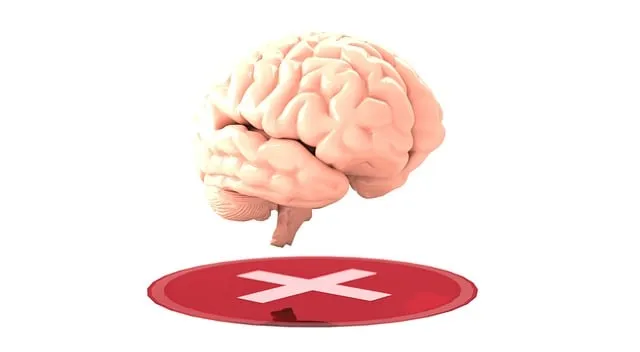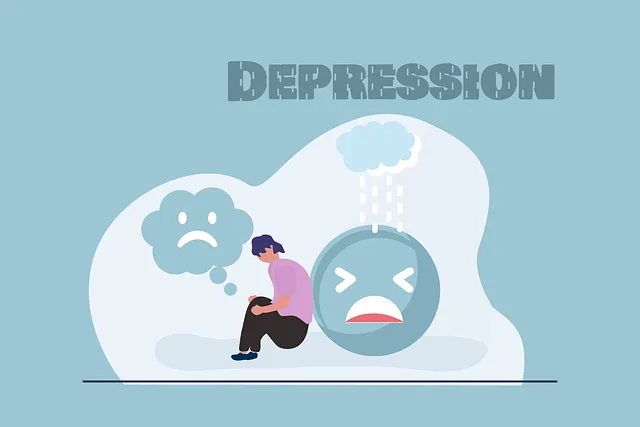The Northglenn Kaiser Permanente Mental Health Access Center focuses on crisis intervention as a key strategy for addressing acute mental health challenges, utilizing evidence-based techniques and a holistic, person-centered approach. They prioritize early detection through community education and programs like Community Outreach, aiming to break down barriers and promote timely access to support. The center creates a safe, supportive environment with non-judgmental attitudes, active listening, de-escalation techniques, and cultural sensitivity, ensuring immediate safety and long-term emotional recovery. Employing tested methods like Inner Strength Development and Mind Over Matter Principles, they foster lasting resilience and coping mechanisms, addressing both crises and underlying socio-cultural factors. Post-crisis interventions include ongoing support, therapy, medication management, self-care routine development, and mental wellness journaling exercises to promote proactive mental stability.
“In response to the critical need for effective crisis intervention, this comprehensive guide explores strategies tailored specifically for the Northglenn Kaiser Permanente Mental Health Access Center. From recognizing subtle signs and symptoms of distress to implementing evidence-based de-escalation techniques, this article equips professionals with essential tools. We delve into creating safe, trusting environments, effective post-intervention support, and real-world application insights drawn from the center’s experience, ensuring optimal patient outcomes.”
- Understanding Crisis Intervention: A Brief Overview for Northglenn Kaiser Permanente Mental Health Access Center
- Identifying Signs and Symptoms: Early Detection Strategies for Effective Interventions
- Creating a Safe Space: Establishing Trust and De-escalation Techniques
- Evidence-Based Approaches: What Works Best in Real-world Settings at the Center
- Post-Intervention Support and Follow-up: Ensuring Long-term Wellbeing of Patients
Understanding Crisis Intervention: A Brief Overview for Northglenn Kaiser Permanente Mental Health Access Center

At the Northglenn Kaiser Permanente Mental Health Access Center, crisis intervention strategies play a pivotal role in supporting individuals facing acute mental health challenges. Understanding crisis intervention involves recognizing that it’s a short-term, focused approach to help someone safely navigate a severe emotional or psychological distress moment. The center’s trained professionals are equipped with evidence-based techniques to stabilize individuals, assess their needs, and connect them with appropriate resources.
This guidance emphasizes the importance of a holistic, person-centered approach, considering each individual’s unique circumstances and strengths. By integrating self-care routine development for better mental health, mind over matter principles, and confidence boosting strategies, crisis intervention becomes more effective. The Northglenn Kaiser Permanente Mental Health Access Center is dedicated to fostering resilience and promoting long-term well-being through these crucial interventions.
Identifying Signs and Symptoms: Early Detection Strategies for Effective Interventions

Early detection is a cornerstone of effective crisis intervention strategies. By being attuned to the subtle signs and symptoms that may indicate someone is struggling, individuals can play a vital role in preventing escalation and facilitating timely access to support. At the Northglenn Kaiser Permanente mental health access center, they emphasize the importance of educating communities on these warning signs, which can range from changes in mood and behavior to physical symptoms like insomnia or appetite alterations. This proactive approach, coupled with the Community Outreach Program Implementation, empowers bystanders to intervene earlier, potentially saving lives and reducing the burden on emergency services.
The implementation of mental illness stigma reduction efforts further strengthens these strategies. By fostering an environment where individuals feel comfortable seeking help without fear of judgment, we can encourage early disclosure. This is crucial in breaking down barriers to care, ensuring that those in need receive timely interventions. Whether through awareness campaigns or training programs, equipping the community with the tools to recognize and respond appropriately can make a significant difference in someone’s journey towards mental wellness.
Creating a Safe Space: Establishing Trust and De-escalation Techniques

At the Northglenn Kaiser Permanente mental health access center, creating a safe space is paramount for effective crisis intervention. This involves establishing an environment where individuals feel secure and supported, fostering trust through non-judgmental attitudes and active listening. By implementing de-escalation techniques, such as deep breathing exercises or calming distractions, caregivers can help patients manage their emotions during stressful situations. Emotional Intelligence plays a crucial role here; understanding and responding appropriately to the patient’s emotional state can significantly alleviate tension.
Cultural Sensitivity in Mental Healthcare Practice is another vital aspect. Recognizing and respecting diverse cultural backgrounds ensures that interventions are tailored to each individual’s unique needs. This personalized approach, guided by Mind Over Matter Principles, empowers patients to take control of their mental well-being, fostering resilience and a sense of empowerment. Through these strategies, the Northglenn Kaiser Permanente center aims to provide comprehensive crisis intervention services that address both the immediate need for safety and the long-term goal of emotional recovery.
Evidence-Based Approaches: What Works Best in Real-world Settings at the Center

At the Northglenn Kaiser Permanente mental health access center, evidence-based approaches are at the forefront of crisis intervention strategies. These methods, rigorously tested and proven effective in real-world settings, offer a reliable roadmap for professionals navigating complex psychological situations. By prioritizing research-backed techniques, such as Inner Strength Development and Mind Over Matter Principles, the center ensures that its interventions are not just temporary fixes but foster lasting resilience and coping mechanisms.
Cultural sensitivity in mental healthcare practice is another cornerstone of these evidence-based strategies. Recognizing the diverse backgrounds and experiences of individuals seeking help, the center incorporates cultural considerations into its approach, promoting inclusivity and enhancing the effectiveness of care. This nuanced understanding enables professionals to connect with clients on a deeper level, addressing not just the immediate crisis but also the underlying socio-cultural factors that contribute to mental health challenges.
Post-Intervention Support and Follow-up: Ensuring Long-term Wellbeing of Patients

After a crisis intervention, providing ongoing support and follow-up care is vital to ensure patients’ long-term mental wellness. The Northglenn Kaiser Permanente mental health access center offers comprehensive resources for individuals seeking assistance with managing their mental health. This includes continued therapy sessions, medication management, and various self-care routine development programs designed to enhance one’s overall well-being.
Guiding patients through mental wellness journaling exercises can be a powerful tool during this period. Regular reflection in a Mental Wellness Journal allows individuals to process their emotions, track progress, and identify triggers or patterns that might contribute to future crises. This practice fosters self-awareness and encourages proactive measures for maintaining mental stability. Additionally, centers like Northglenn Kaiser Permanente may provide guidance on implementing Self-Care Routine Development strategies, ensuring patients have the tools they need to nurture themselves both physically and emotionally.
The Northglenn Kaiser Permanente Mental Health Access Center’s commitment to crisis intervention extends far beyond immediate support. By mastering early detection, establishing safe spaces, and employing evidence-based approaches, the center ensures that patients receive comprehensive care tailored to their unique needs. Through post-intervention follow-up, they foster long-term wellbeing, making a lasting impact on the lives of those facing crises in the community.






